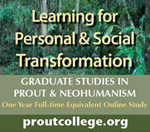By Ramesh Bjonnes
In 2010, a couple of years after we opened the Prama Institute, we hosted a retreat with Mayan Abdominal Massage Therapist Rosita Arvigo. Each morning, before breakfast, I would see Dr. Arvigo stir a brown paste in a cup and then consume it with a spoon.
When I asked her what it was, she said: “Oh, it’s just cacao. My teacher, Don Elijo Panti, told me that if I want to live as long as him, then I have to eat this every morning.”
In the form of liquid cacao, Dr. Arvigo was ingesting a concentrated form of antioxidants, since cacao has almost three times as many of these health and longevity nutrients as wild blue berries.
Her teacher, Don Elijo Panti, heralded by the New York Times as “The last Maya master healer in Belize,” was promoting something that nutritional science has recently discovered: large doses of antioxidants are important for longevity. Don Elijo, I later learned, died at 103.
A few years ago, I read John Robbins’ book Healthy at 100, a book about how we can, at any age, dramatically increase our life and health span. In this book, there is a chapter entitled “Hunza: A People Who Dance in Their Nineties.”
I knew that it was possible to live a cheerful and long life, because my great grandfather, an easygoing wood worker and herbalist, chopped his own wood a few days before he died of a heart attack at 99.
So, what is the secret to these long living people? It can’t be just eating unsweetened chocolate or, in my great grandfather’s case, lots of antioxidant blueberries and Norwegian homegrown apples. Yes, what is it that enable the Hunza sheep herders in the mountains of Pakistan to climb like agile goats into their 90s?
There are two main causes of premature death according to Dr. Andrew Weill: stress and a bad diet. Despite many hardships, the Hunzas were an exceptionally cheerful and laidback people according to the first Western explorers who encountered them. In an old copy of the Journal of the Royal Geographical Society it is written: “The Hunzan men… were the most cheerful and willing men with whom we have ever traveled.”
The Hunza diet is also unique, at least if we contrast it with the standard American diet of refined carbohydrates, sugary drinks, lots of meat and dairy and very few vegetables and fruits. The secret to their diet is not that it resembles the now so popular paleo and keto diets, which are high in animal proteins and low in carbohydrates and said to help people lose weight.
To the contrary, the Hunza diet is relatively high in carbs—about 73% of their calories—but these carbs do not come from French fries and pastries, but rather from whole foods such as fruits, vegetables, and grains. Indeed, they eat lots of fruits and berries, including peaches, apricots, pears, plums, grapes, cherries and mulberries. All harvested from their own gardens.
Their diet is also very low in protein, only about 10% and in contrast to the paleo diet, their meat consumption is minimal, about 1% of their diet. Moreover, their overall calorie intake is only 1900 for adult males. Contrast that with the average American who consumes about 3000 calories, much of it from refined carbs and meat products. No wonder that premature heart attacks are unknown among the Hunzas but very common in America.
In sum, here are the two main secrets to the Hunza longevity lifestyle:
1) A stress-reducing, cheerful, optimistic and celebratory lifestyle—they are known for their many family gatherings and festivals
2) A nutrient dense diet without sugar and processed foods, very low animal fat intake, and a nutritional regime high in nutrient rich plants—as well as probiotics from kefir and fermented foods.
In spite of our best efforts, the process of aging is inevitable, and we will all face various challenges throughout life. But there are proactive steps we can take that can make us healthier and stronger at any age if we apply the simple principles of the Hunzas and other long living peoples.
In John Robins’ book, he features other long living people from around the world, such as the Okinawans of Japan and the Abhkasians of Russia, who live similar long living lifestyles as the Hunzas, people whom cutting edge scientists are now studying and concluding that it is indeed possible to live healthy until 100.
This article originally was published in the blog of the Prama Institute and Wellness Center.




